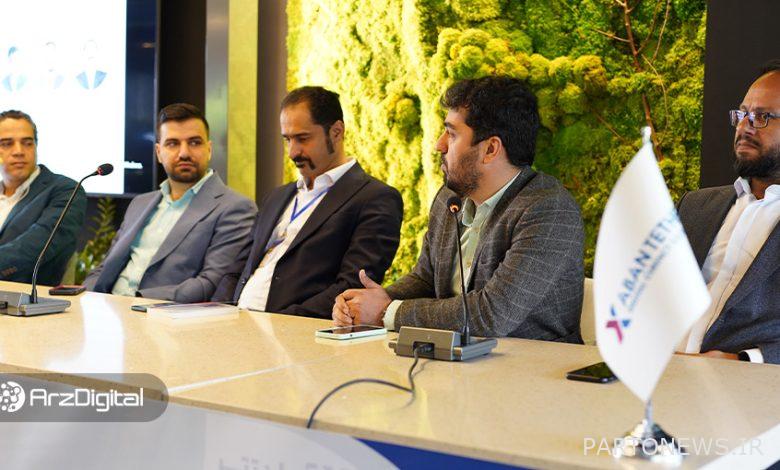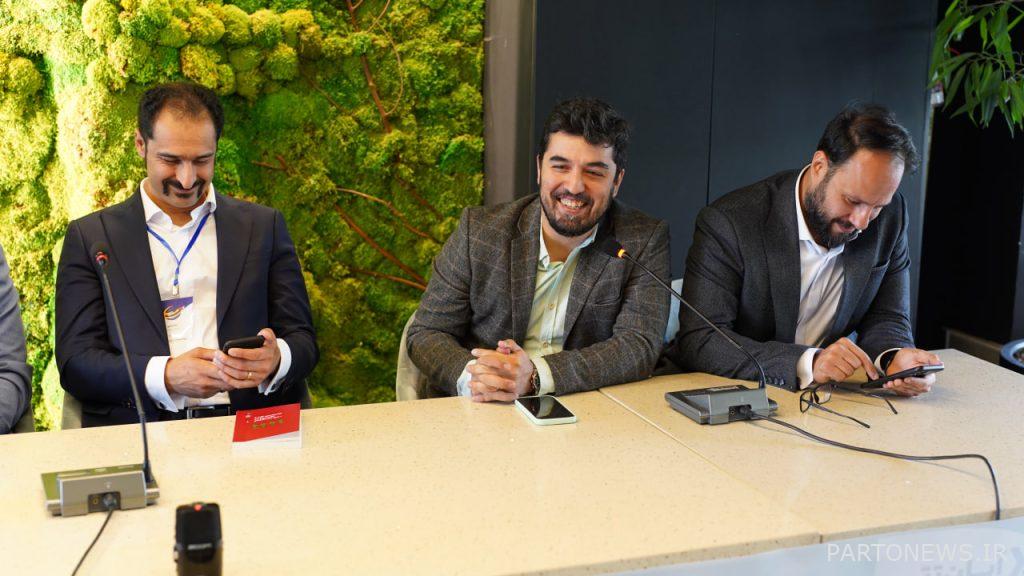From this product to taxes; The discussion of three active organizations in the field of digital currencies in Iran

Aban Tether digital currency exchange unveiled its 2022 report last week during a ceremony. On the sidelines of this ceremony, however, a panel was held with the presence of representatives of three major Iranian associations that are active in the field of digital currencies.
Mohammad Mahdi Fatemian and Mustafa Amiri, as the president and secretary of FinTech Association; Abbas Ashtiani as CEO of Blockchain Association of Iran and Reza Ghorbani as head of fintech commission of Tehran computer trade union system were present in this panel.
At the beginning of the panel, Abbas Ashtiani, the CEO of the Iranian Blockchain Association, spoke about the changes in the legislative environment in the field of digital currencies in recent years. Ashtiani believes that the regulation of digital currencies seems to be a complicated matter for all countries of the world, but what is clear is the agility and changeability of this field, and therefore the regulation of this field does not fit into the traditional licensing system.
He says that the result of the efforts of the private sector to communicate with the governing bodies over the past years is that now some kind of self-regulation is going to happen in this area. In this part of his speech, the CEO of the Blockchain Association of Iran clearly refers to the mechanism designed to grant IMD to domestic digital currency exchanges. He believes that with this happening, private sector businesses can finally have a stronger role in setting the requirements related to their field of work.
In the continuation of the panel, Reza Ghorbani, head of the FinTech Commission of Tehran Computer Trade Union Organization, spoke about the competence of various governing bodies to legislate the country’s digital currency space. Ghorbani believes that none of the existing institutions have the ability to legislate in this field and a new institution should be formed for the field of financial technologies.
He says that until five or four years ago, there was a maximalist view in this area and interaction with the government for legislation was not welcomed, but now we can talk about the legislation of this space very easily.
Ghorbani considers it a positive thing to grant Inmad to active domestic exchanges, but says that if new businesses are to be prevented in this mechanism, we will face challenges that have been seen in other similar sectors and innovation in this space may be lost. .
Mohammad Mahdi Fatemian, the head of Iran’s fintech association, raised the issue in the next section that until 1400, the government had an approach to completely close the field of digital currencies, but after a period of time, the space moved towards interaction.
According to Fatemian, during the peak period of the market, up to 15 thousand billion tomans of money were transferred in this area every day, and this was naturally scary for the government. Because this financial flow is outside the control of the government, and if illegal financing happens in it, the government has no control over it. He says that the desire of businesses to interact with the legislator is also because they have noticed these governance concerns.
The head of Iran’s fintech association agrees with Ghorbani’s opinion about the incompetence of the existing institutions to legislate the country’s digital currency space and says that if the businesses operating in this space comply with the rules related to financial crimes and coordinate with security institutions to deal with crimes, it is unlikely that There is another issue and there is even a need to write a document or create a new legislative body.
At the end of his speech, Ashtiani said about the number of trade unions active in this field that this number will eventually provide better services to businesses, because in such a situation, the business will go to another organization in case of disruption. Therefore, every organization will try to provide the best service.

Mustafa Amiri, Secretary of the Fintech Association, in response to the question whether taxing the digital currency space could mean formalizing this field or not, explained that many companies active in this sector have about 5 years of tax history and when A group pays taxes, that is, it is not a criminal. So, it means that the government has somehow accepted the activities of businesses in this area, but has neglected to give concessions.
Fatemian also considered receiving tax on capital gains from users’ digital currency transactions as a factor for the huge outflow of capital from Iranian platforms to foreign platforms. He believes that organizations should interact with the legislator regarding the issue of capital gains tax in order to determine the risks of this action for governance.

